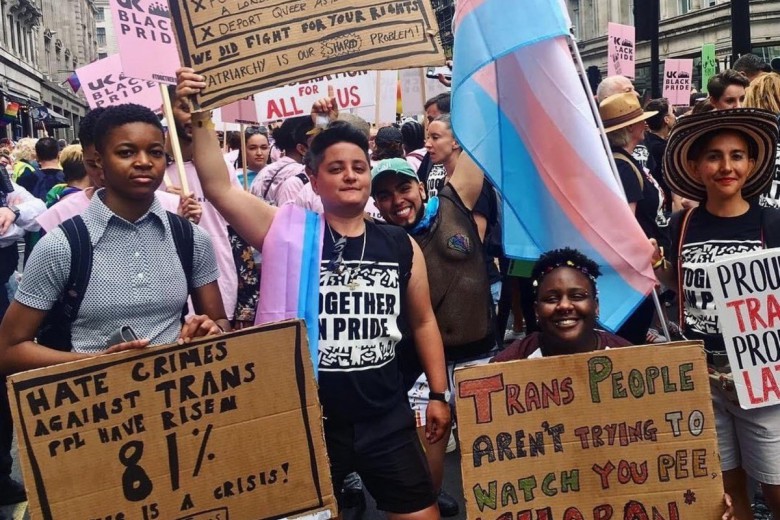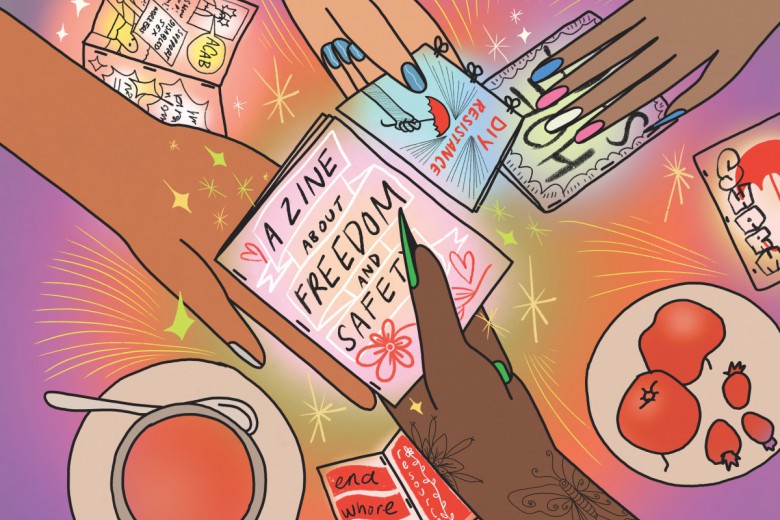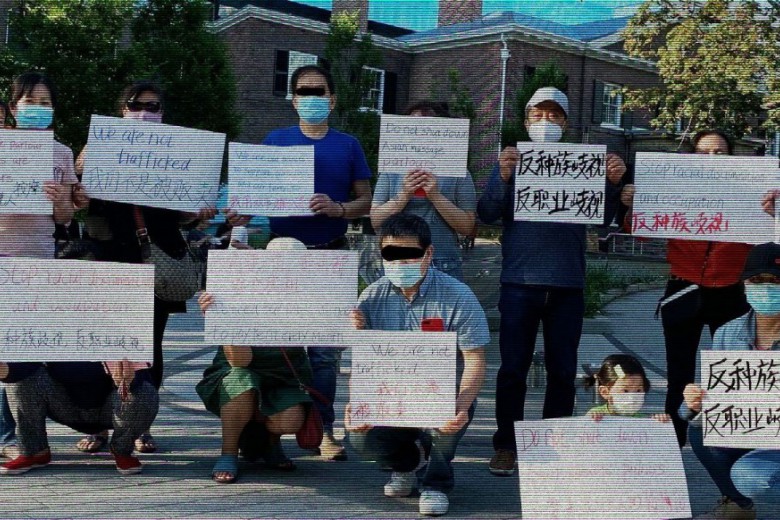This year, the Harper government has been unwillingly confronted by advocates for gender-based equality and safety on two fronts: by those demanding action on Missing and Murdered Indigenous Women (MMIW) and in response to the Conservative push for the re-criminalization of some aspects of sex work in Bill C-36. Official statements on both issues have been remarkably similar. In each case, women are silenced in the course of being described as “victims” who are in need of protection by the state and its representative agencies.
In the case of Bill C-36, this sentiment was expressed most directly by MP Peter MacKay: “The bill recognizes that the vast majority of those who sell sexual services do not do so by choice … We view the vast majority of those involved in selling sexual services as victims.” The bill, though ostensibly protecting sex workers by targeting buyers, would nonetheless criminalize the use of certain safety measures, such as working in groups, and particular forms of public communication, while pushing sex workers into increasingly unsafe places in order to find clients. According to MacKay, Bill C-36’s “ultimate objective” is “to reduce the demand for prostitution with a view towards discouraging entry into it, deterring participation in it, and ultimately abolishing it to the greatest extent possible.” The Conservative government is thus able to argue it is taking action on the violence that sex workers face in the midst of introducing legislation that will actually make sex work more unsafe.
Similarly, salvation for Indigenous women facing obscenely disproportionate threats of violence is to be found through the police and legal systems, according to the Conservatives. “Just get on and do it,” Harper is quoted as saying, urging Indigenous women along the Highway of Tears in northern B.C. to report violence to the RCMP. This, despite the fact that the RCMP and its officers are agents of a colonial state and have been seriously implicated in the plight of Missing and Murdered Indigenous Women, as even Human Rights Watch reports.
Both of these issues, sex work and MMIW, have resulted in grassroots, community-based organizing, with highly respected groups offering well-supported policy alternatives that the Harper Conservatives have refused to adopt (or even recognize in many cases). Feminist groups as well as outspoken sex workers have called for de-criminalization of sex work with a shift of focus to human trafficking and labour exploitation in all its forms. Indigenous-led groups such as Families of Sisters in Spirit, the Native Women’s Association of Canada, and the Assembly of First Nations have also offered a range of suggestions on the best practices to combat the high levels of violence that Indigenous women face, including calls for a public inquiry, a holistic approach that addresses the legacies of colonial violence, and increased resources to document confirmed or suspected cases of violence. This is in addition to the statements to the same effect from international organizations such as Human Rights Watch, Amnesty International, and the United Nations. Yet, governmental action has been steered in a different direction.
What these proposed alternatives have in common is their focus on the grassroots, rather than the top-down approach. They foreground the voices of those with on-the-ground experience, follow their leadership, and work through the co-operation of entire communities, rather than individuals. Despite Harper’s warnings, such community efforts intentionally seek to “commit sociology,” investigating the structural determinants of health and well-being. They reject the paternalistic assumption that Indigenous women, sex workers, and many others are merely victims who are incapable of voicing their own needs and who await rescue by the colonial state and its police.
As such, it has become clear that there is an impasse at the policy level, with legislators unwilling, or possibly fundamentally incapable, of enacting the kind of meaningful change demanded by communities, activists, and advocates on the ground. The truth is that policy that acknowledges and addresses the effects of ongoing colonization and patriarchal violence is at odds with the Canadian state and its current representatives. To take leadership from those defined as victims would redistribute the balance of power in favour of those whose continued dispossession and exploitation is required by the economic system which the state serves. Thus, the incompatibility runs deep: it is not budgetary, but structural and ideological.
This doesn’t mean there’s no value to pursuing legislative change. And we should recognize that governments can mobilize resources at a scale that grassroots organizations generally can’t. There is power in policy and in the courts. What must be recognized, however, is that these are not in themselves the sources of power. Long-lasting and effective change derives from the organized power of communities on the ground, who are able to pressure politicians, legislators, and administrators for progressive ends, while simultaneously creating their own independent infrastructure and supports.







